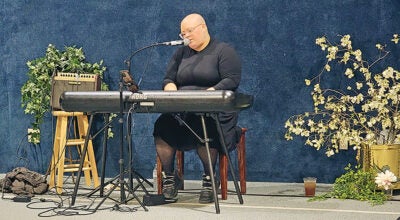Goff denied new trial from high court
Published 9:38 am Tuesday, May 14, 2013
Megan Goff will not get a new trial in the 2006 shooing death of her estranged husband.
A one-line judgment entry, filed May 8 by the Ohio Supreme Court, was received Monday by the Lawrence County Prosecutor’s Office.
County Prosecutor Brigham Anderson said the high court declined to hear Goff’s appeal.
Goff’s attorney, Paula Brown of Columbus, filed the appeal Feb. 14, a little more than a month after the Ohio Fourth District Court of Appeals upheld the 2011 murder conviction of her husband Bill Goff. The appeal was based on several areas of law, one of which stated “a battered woman does not lose her right to occupy the marital residence when she takes temporary refuge from her abusive spouse in order to protect herself and her children.”
Anderson filed a response to the appeal in March with the high court, contending that Goff failed to prove she did not create the situation that led to the shooting death of her husband.
Anderson, who was lead prosecutor for Megan Goff’s second trial in August 2011 after the Ohio Supreme Court overturned her first conviction of aggravated murder because of a procedural error, said he was satisfied with the final result.
“I’m happy with the result,” Anderson said. “We believe the jury made the right decision in finding her guilty of murder and she’ll now serve the sentence, which is life with the possibility of parole in 18 years.”
Anderson said this ends Goff’s appeal process.
On March 17, 2006, Goff went to the home of her estranged husband, Bill Goff, in Hanging Rock, and shot him 15 times. Bill Goff died as a result of multiple gunshot wounds. Megan Goff claimed she acted in self-defense and that she had been abused during their marriage, claiming battered woman’s syndrome.
In May of that year, Goff was convicted of aggravated murder following a bench trial by Visiting Judge Fred Crow, who sentenced her to life in prison with the possibility of parole after 33 years.
That conviction was overturned by the Supreme Court of Ohio on the grounds a witness for the prosecution, a psychiatrist, was allowed to testify on issues he should not have and a new trial was ordered.
Goff’s jury trial began in August 2011, and she was found guilty of murder and sentenced to life in prison with parole eligibility after 15 years. Because she used a gun to commit her crime, an automatic three years were added to the 15, making her parole eligibility possible after 18 years.





